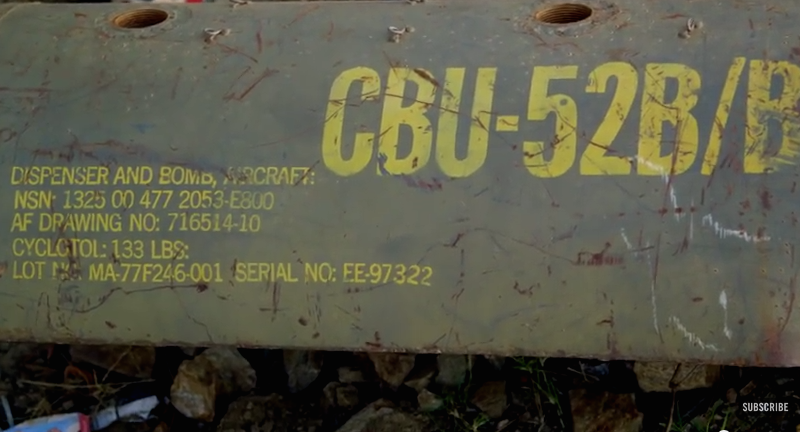Campaigners are warning Saudi Arabia and other states not to use cluster munitions in their "Operation Decision Storm" military operation in Yemen that started on March 26. According to Human Rights Watch as many as 34 civilians were killed in Yemen's capital Sanaa during the first two days of air strikes against Ansar Allah, the armed wing of the Zaidi Shia group known as the Houthis.
None of the nations participating in the Saudi Arabia-led coalition--Bahrain, Egypt, Jordan, Kuwait, Morocco, Pakistan, Qatar, Sudan, UAE--are signatories to the 2008 Convention on Cluster Munitions, which comprehensively bans the weapons. Neither is Yemen or the United States, which is reportedly providing intelligence and logistical support to Operation Decision Storm.
The Cluster Munition Coalition U.S. supports the international call for Saudi Arabia and all nations involved in the military action in Yemen to avoid any use of banned cluster munitions. Its coordinator Human Rights Watch said, "Saudi forces should publicly reject any use of cluster munitions and recognize that their use could have a devastating impact on civilians."
There is credible evidence that Saudi Arabia used U.S.-made cluster bombs in air strikes on Yemen’s northern Sada’a governorate in November 2009. Remnants, including unexploded submunitions, have been recorded by several sources. In July 2013, Yemeni deminers photographed unexploded U.S.-made BLU-97 and BLU-61 submunitions. In May 2014, VICE News filmed the remnants of U.S.-made CBU-52 cluster bombs near the city of Sada’a, the capital of Sada’a governorate. It also published photographs and additional research.
Yemen is believed to stockpile only cluster munitions of Soviet origin and, unless modified, its Soviet supplied aircraft are not capable of delivering U.S.-made cluster bombs. U.S. export records show that Saudi Arabia has received significant exports of U.S. cluster munitions and the other countries participating in Operation Decision Storm are believed to stockpile the weapons.
The last publicly recorded U.S. use of cluster munitions was in Yemen's Abyan governorate in the south of the country on 17 December 2009, involving the use of at least one TLAM-D cruise missile with 166 BLU-97 submunitions. There has been no evidence to indicate that the U.S. is using cluster munitions in the “Operation Inherent Resolve” military action against forces of the Islamic State or ISIL that began last year in Syria and Iraq.
The Cluster Munition Coalition has called on the 116 nations that are part of the Convention on Cluster Munitions to take immediate action to discourage any use of cluster munitions in Yemen and elsewhere. These states are legally obliged by Article 21 to promote the convention’s norms by discouraging any use of cluster munitions by states outside the convention.
UPDATE: At a press conference in Riyadh on March 29, Saudi military official Brig. Gen. Ahmad Al-Assiri responded “We are not using cluster bombs at all.”
Saudi Arabia should clarify that it will not use cluster munitions under any circumstances in Yemen or elsewhere.
For more information, see:
- Cluster Munition Coalition letter to Saudi Arabia (Mar. 27, 2015)
- Cluster Munition Monitor 2014 (Sep. 2014) ban policy profiles on Yemen, U.S., Bahrain, Egypt, Jordan, Kuwait, Morocco, Pakistan, Qatar, Saudi Arabia, Sudan, United Arab Emirates
- Ben Anderson and Peter Salisbury, "US Cluster Bombs Keep Killing Civilians in Yemen," VICE News (May 17, 2014)
